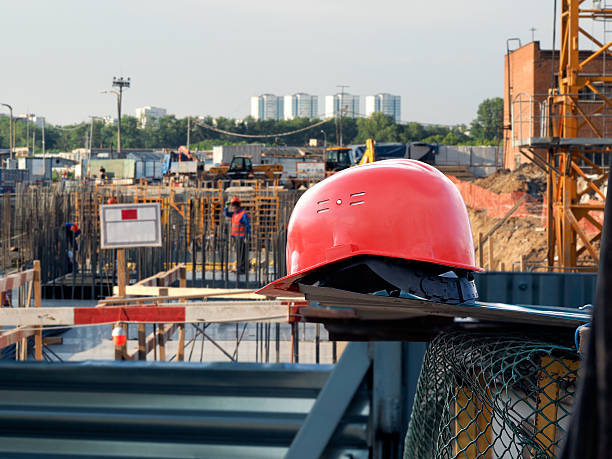
n the fast-paced world of construction, time is of the essence. The ability to complete projects swiftly and efficiently can make or break a contractor’s success. As the demand for quicker project turnarounds increases, traditional construction methods are often unable to keep pace. Enter rapid construction formwork—a revolutionary approach that is transforming the industry by offering speed, efficiency, and cost-effectiveness. For contractors, this innovation is not just a trend but a game-changer that has the potential to redefine how projects are delivered.
Understanding Rapid Construction Formwork
Rapid construction formwork refers to a system of modular, pre-engineered panels or components designed to expedite the construction process. Unlike conventional formwork, which is typically custom-built on-site using materials like timber or plywood, rapid construction formwork utilizes lightweight, durable materials such as aluminium or plastic. These materials are prefabricated to specific dimensions and shapes, allowing for quick assembly and disassembly.
The core advantage of rapid construction formwork lies in its ability to reduce the time spent on the formwork phase of construction. By simplifying the assembly process and enabling faster concrete pouring and curing, these systems drastically cut down on project timelines, allowing contractors to move on to subsequent stages of construction more quickly.
The Speed Advantage
One of the most significant benefits of rapid construction formwork is the speed at which it enables projects to progress. Traditional formwork methods can be labor-intensive and time-consuming, often requiring skilled carpenters to custom-build forms for each project. This process not only slows down the construction timeline but also increases labor costs.
With rapid construction formwork, the pre-engineered panels can be quickly assembled and adjusted to fit the specific needs of the project. This efficiency can reduce formwork installation time by up to 50% compared to traditional methods. For contractors, this means that more work can be completed in a shorter period, leading to faster project delivery and the ability to take on more projects within the same timeframe.
Cost-Effectiveness
While the initial investment in rapid construction formwork systems may be higher than traditional methods, the long-term cost savings are substantial. The reusable nature of these systems means that the same set of formwork can be used across multiple projects, reducing the need for new materials and cutting down on waste. Over time, this can lead to significant savings in material costs.
Additionally, the reduced labor requirements associated with rapid construction formwork contribute to lower overall project costs. Since the system is designed for quick and easy assembly, less time and fewer workers are needed to complete the formwork stage, leading to a more streamlined and cost-effective construction process.
Improved Quality and Precision
Rapid construction formwork systems are engineered for precision. The use of standardized panels ensures that each section of the formwork is perfectly aligned and consistent in size, resulting in higher-quality concrete finishes. This level of precision reduces the likelihood of errors or defects, which can be costly and time-consuming to fix.
For contractors, the ability to deliver high-quality results consistently is a key factor in maintaining a good reputation and securing future business. Rapid construction formwork helps achieve this by minimizing the risk of imperfections and ensuring that each project meets the highest standards of workmanship.
Versatility and Adaptability
Another advantage of rapid construction formwork is its versatility. These systems are designed to be adaptable to a wide range of project types, from residential buildings to commercial complexes and infrastructure projects. The modular nature of the formwork allows for easy adjustments to accommodate different shapes, sizes, and configurations, making it suitable for even the most complex designs.
This adaptability is particularly beneficial for contractors who work on diverse projects. With rapid construction formwork, they can use the same system across multiple jobs, regardless of the project’s specific requirements. This not only simplifies the construction process but also reduces the need for multiple formwork systems, further enhancing cost savings and efficiency.
Enhanced Safety
Safety is a top priority on any construction site, and rapid construction formwork contributes to a safer working environment. The lightweight materials used in these systems are easier to handle, reducing the risk of injuries associated with heavy lifting. Moreover, the quick assembly and disassembly process minimize the amount of time workers spend at height, further reducing the potential for accidents.
In addition, the precise engineering of rapid construction formwork ensures that the structures are stable and secure, providing a reliable platform for workers to operate on. This added layer of safety is crucial for contractors who are responsible for maintaining a safe worksite and protecting their workforce.
Sustainability
In today’s construction industry, sustainability is becoming increasingly important. Rapid construction formwork systems contribute to more sustainable building practices by reducing waste and promoting the reuse of materials. The long lifespan of these systems means that they can be used repeatedly without significant degradation, lowering the environmental impact of construction projects.
For contractors, adopting sustainable practices not only helps protect the environment but also enhances their marketability. As clients and regulatory bodies place greater emphasis on eco-friendly construction methods, using rapid construction formwork can provide a competitive edge.
Conclusion
Rapid construction formwork is revolutionizing the construction industry by offering a faster, more efficient, and cost-effective alternative to traditional formwork methods. For contractors, this innovation is a game-changer that can significantly enhance project timelines, reduce costs, improve quality, and promote safety on the job site. As the demand for rapid construction continues to grow, those who embrace these advanced formwork systems will be well-positioned to lead the way in delivering successful, high-quality projects.
By investing in rapid construction formwork, contractors can not only meet the challenges of today’s fast-paced construction environment but also set themselves up for long-term success in an increasingly competitive industry.







